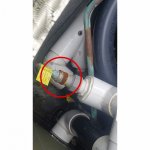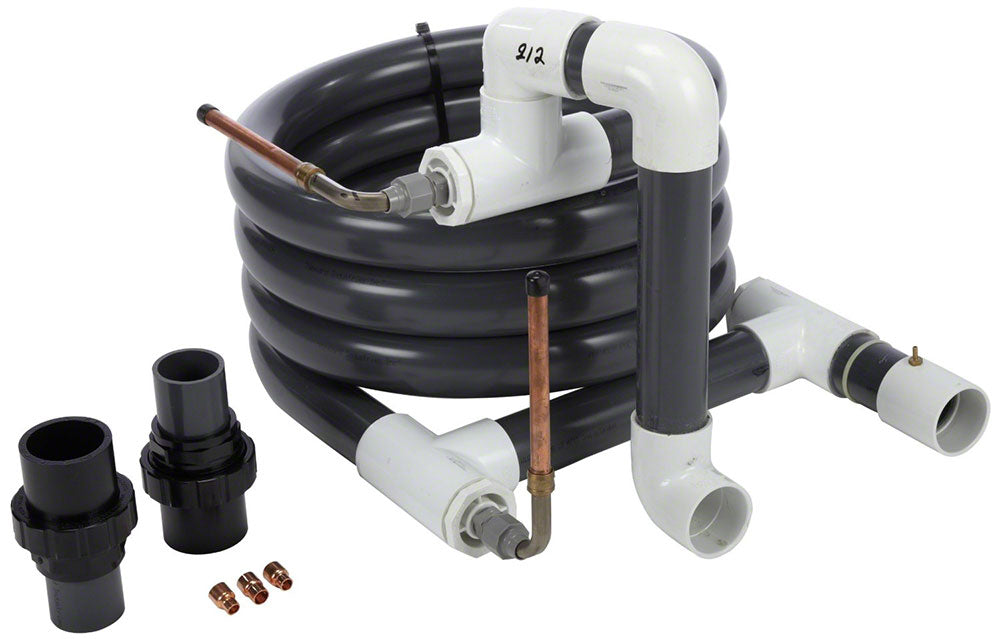I have a 9 year old Hayward SUM8TA 140k BTU pool heat pump that is leaking freon. The tech who was recharging it spotted the leak. The titanium part of the heat exchanger is still under warranty, but nothing else. No labor warranty. Charging the unit is about $500, and last time it lasted about 6 months. The leaking part (the entire heat exchanger) is about $2k and I'd estimate about $1k for labor/recharge. All-in for replacing the entire heat pump is about $10k.
I'm trying to determine if the leak is repairable, or if the component that is leaking is the titanium coil. The leak is near the interface where the refrigerant coil exits the water jacket. It may be where the titanium part transitions to copper. See the video link for a short video of the leak the tech made. The photo shows the location of the leak, but that's not my photo or heat pump, just one I found on the internet. (The heat pump is in Hawaii and I'm currently off island, so I have not seen the leak first hand.)

Has anyone had a leak like this before? Can it be repaired without replacing the entire $2k heat exchanger? I'm not sure it makes sense to put $3k into a 9 yo heat pump, but I did not plan on spending $10k to replace it either. Recharging it every 6 months perhaps makes more sense, but ethically I don't like the idea of continually dumping freon into the atmosphere.
video of leak
$2k replacement part SMX24024864

 www.poolweb.com
On newer versions of this part, it looks like they changed that fitting/location somewhat, perhaps because of failures like this.
www.poolweb.com
On newer versions of this part, it looks like they changed that fitting/location somewhat, perhaps because of failures like this.
Thanks for anything you can share.
Glen
I'm trying to determine if the leak is repairable, or if the component that is leaking is the titanium coil. The leak is near the interface where the refrigerant coil exits the water jacket. It may be where the titanium part transitions to copper. See the video link for a short video of the leak the tech made. The photo shows the location of the leak, but that's not my photo or heat pump, just one I found on the internet. (The heat pump is in Hawaii and I'm currently off island, so I have not seen the leak first hand.)

Has anyone had a leak like this before? Can it be repaired without replacing the entire $2k heat exchanger? I'm not sure it makes sense to put $3k into a 9 yo heat pump, but I did not plan on spending $10k to replace it either. Recharging it every 6 months perhaps makes more sense, but ethically I don't like the idea of continually dumping freon into the atmosphere.
video of leak
$2k replacement part SMX24024864

SMX24024864 - Heat Exchanger for HP21404T and SUMXL112 - 318 Inches - Hayward
This is a Hayward Replacement Heat Exchanger for HP21404T Pool Pumps and Summit XL SUMXL112, 318 Inches.
 www.poolweb.com
www.poolweb.com
Thanks for anything you can share.
Glen

